The Institute for Youth Development KULT has been using online tools to work faster and be more productive for a while now. Still, taking our interactive modules for the Learn, Think and Act! online was challenging. The current situation caused by the COVID-19 pandemic caused all educational institutions in Bosnia and Herzegovina to hold their classes online, some with more and some with less success. A significant number of UMiD participants are currently doing online classes organized by their high schools and faculties.
We talked to UMiD 15 participants who took part in the online module held from April 23 to 25, 2020 and asked them about their experience with online learning in formal and non-formal education. Project cycle management, which we dealt with during the fourth module, is intended to prepare the participants to conduct local civil initiatives (LCI).
Mia Tučić, a high school student from Travnik says that a lot depends on the teacher.
“When it comes to formal education, some professors try to make their lecture interesting, but such professors are rare. Most just give students presentations to do so they can grade them. When someone is giving their presentation, the rest of the class isn’t paying attention. When these online lectures started, it was obvious that students were interested, but in just a couple of weeks the interest waned and now no one is motivated enough to learn or take part in online classes. One of the advantages of this approach is that professors had to learn more about modern technologies, while difficulty maintaining focus is one of the drawbacks. In formal education, professors and decision makers should take students’ needs more seriously. We need changes in education, that include updating our updated coursebooks and using technology in the teaching process. Professors and teachers should realize that non-formal education is not a waste of time and it’s equally, if not even more, important than formal education. Non-formal education is getting better by the day. Young people in particular are given a growing number of options when it comes to what they want to learn, and which profession they’re interested in, and there’s an expanding array of subjects to choose from.
Hazira Hadžić, student at the Faculty of Economy in Zenica, thinks that multiple online lectures a day make it hard to focus. In her opinion, this creates too big of a burden for students.
“Sitting in front of a computer for hours is really hard, and the ability to concentrates suffers. But, one of the advantages of online lectures is that we can save the lecture and rewind if we need to hear something again. Also, for students who have a job, this online option is much better, since they don’t have to go to the faculty. This saves them time and reduces stress caused by their workload. Negative aspects include a poor internet connection that hinders communication between professors and students. Some professors aren’t familiar with online teaching methods, and it takes them a while to get the hang of it. I’m personally satisfied with how my faculty has organized classes and the online trainings I’m attending. In my opinion, and I think most people would agree, standard classes are much more effective than online learning.”
Dragana Savić, who is studying at the Faculty of Political Sciences of the University of Sarajevo says that it’s not hard to attend online lectures, as long as all the technical requirements are met, which she believes is the biggest obstacle students face. She also thinks that platforms used to hold online lectures can’t convey information the way a professor can in person.
Hana Hodžić and Lamija Pirić study at the International Burch University in Sarajevo. Hana says that keeping up with her online lectures was hard in the beginning.
“The biggest challenge was creating a work atmosphere at home. My professors, and the faculty as a whole, have been doing their best with online lectures, and I don’t see any negative aspects, except the fact that the majority of students don’t take online lectures as seriously as they do in-class ones. I noticed that for me it’s much easier to use online chat to ask my professors a question, and some of my fellow students feel the same way. I somehow feel more comfortable, and to me, that’s a big advantage of online lectures. I also have more time because I don’t have to physically be present at the faculty.” says Hana.
Lamija says online lectures are more demanding than in-class lectures because being at home makes it harder to focus.
“If we’re learning about something that would benefit from being mapped out on a whiteboard, then it’s hard to replace that with online tools. Also, if students are having trouble with a concept and they’re too shy to ask, professors can’t take a look at them and tell they’re confused. My experience with non-formal education was much better, because it’s more relaxed, and that’s what we need in these stressful times. The schedule is more flexible and doesn’t have the same form as usual. Formal education should take into consideration that students are also going through a stressful period, which is an additional burden to them, in addition to their mental state which in adolescence can be unstable.
The Institute will continue organizing modules on online platforms until competent authorities allow for groups to meet, and then non-formal education can move back into conference rooms.



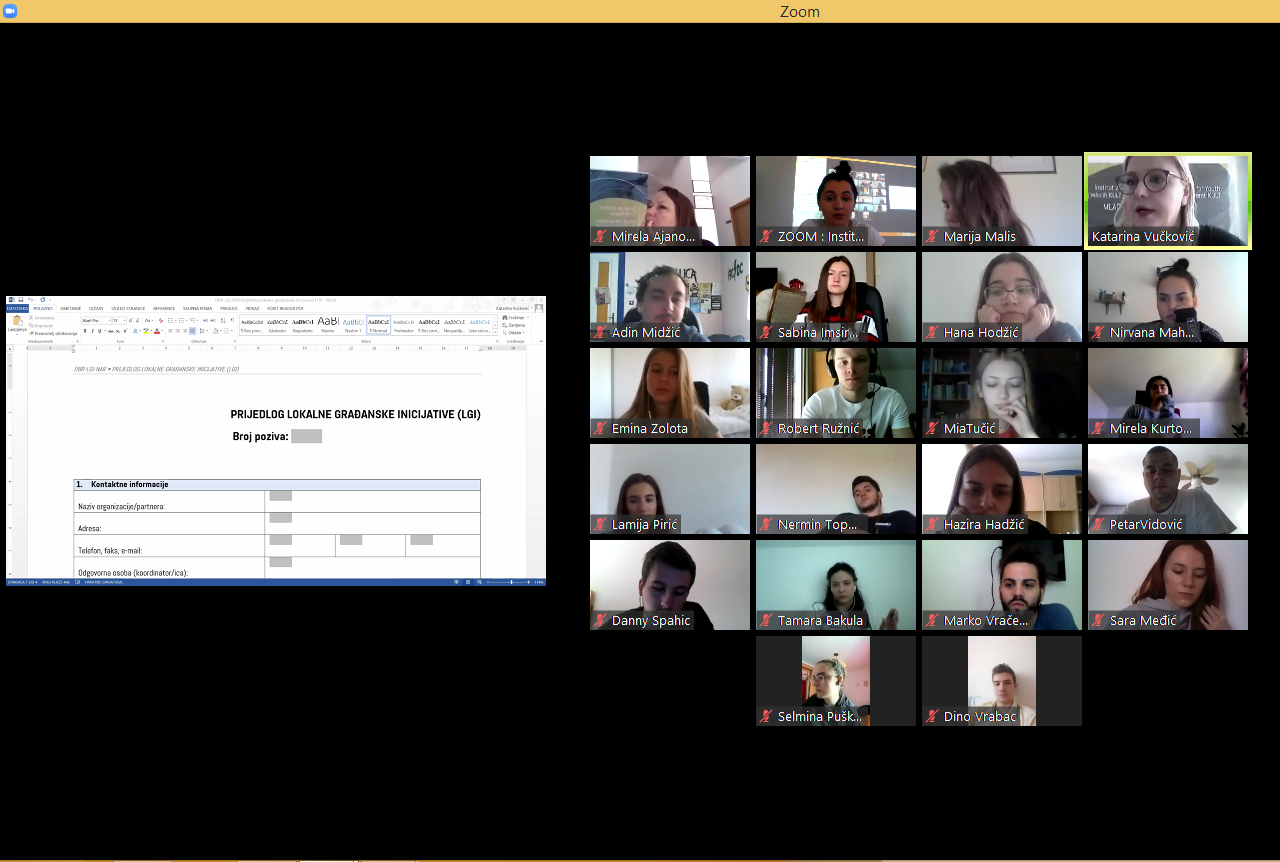
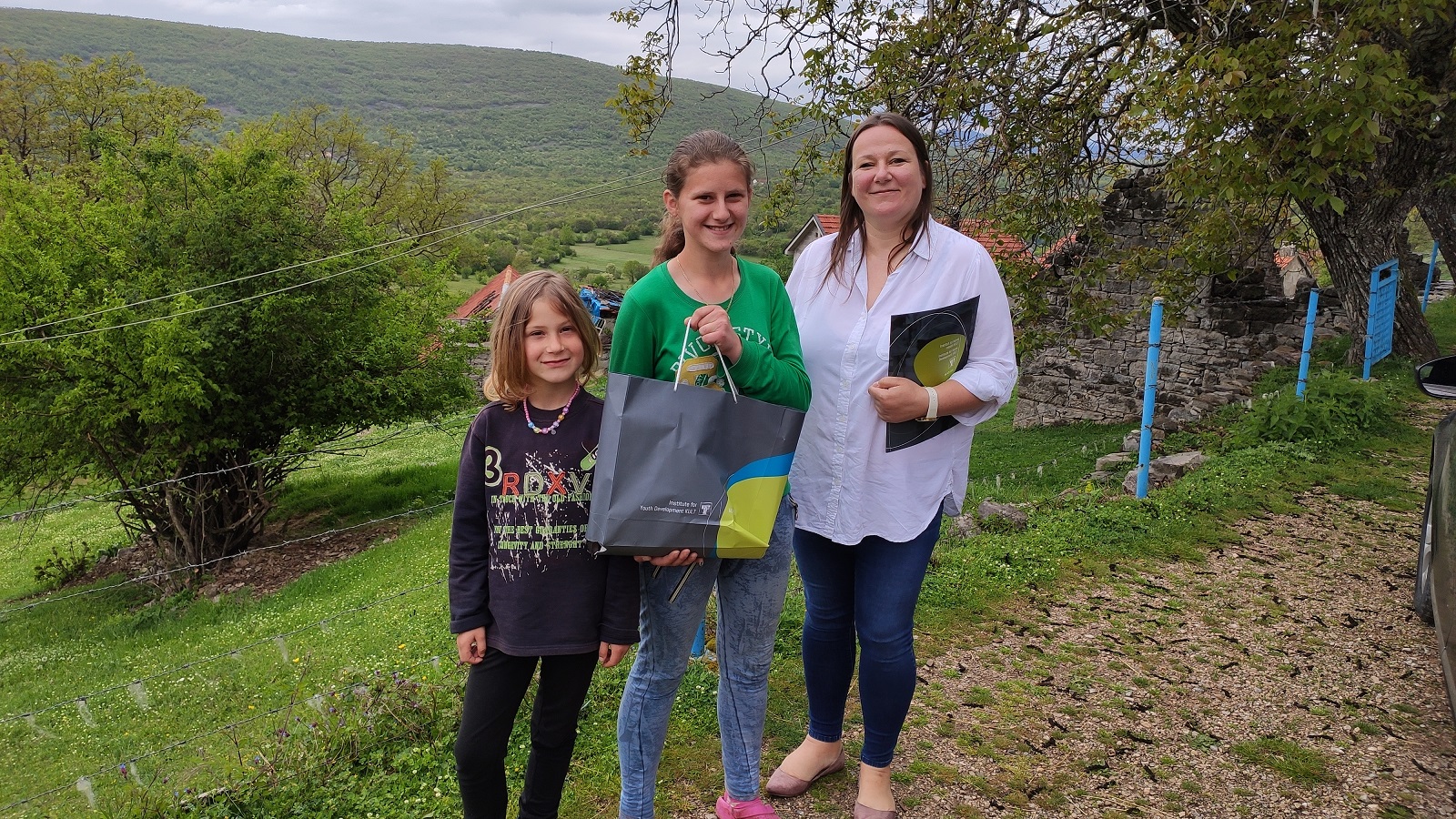
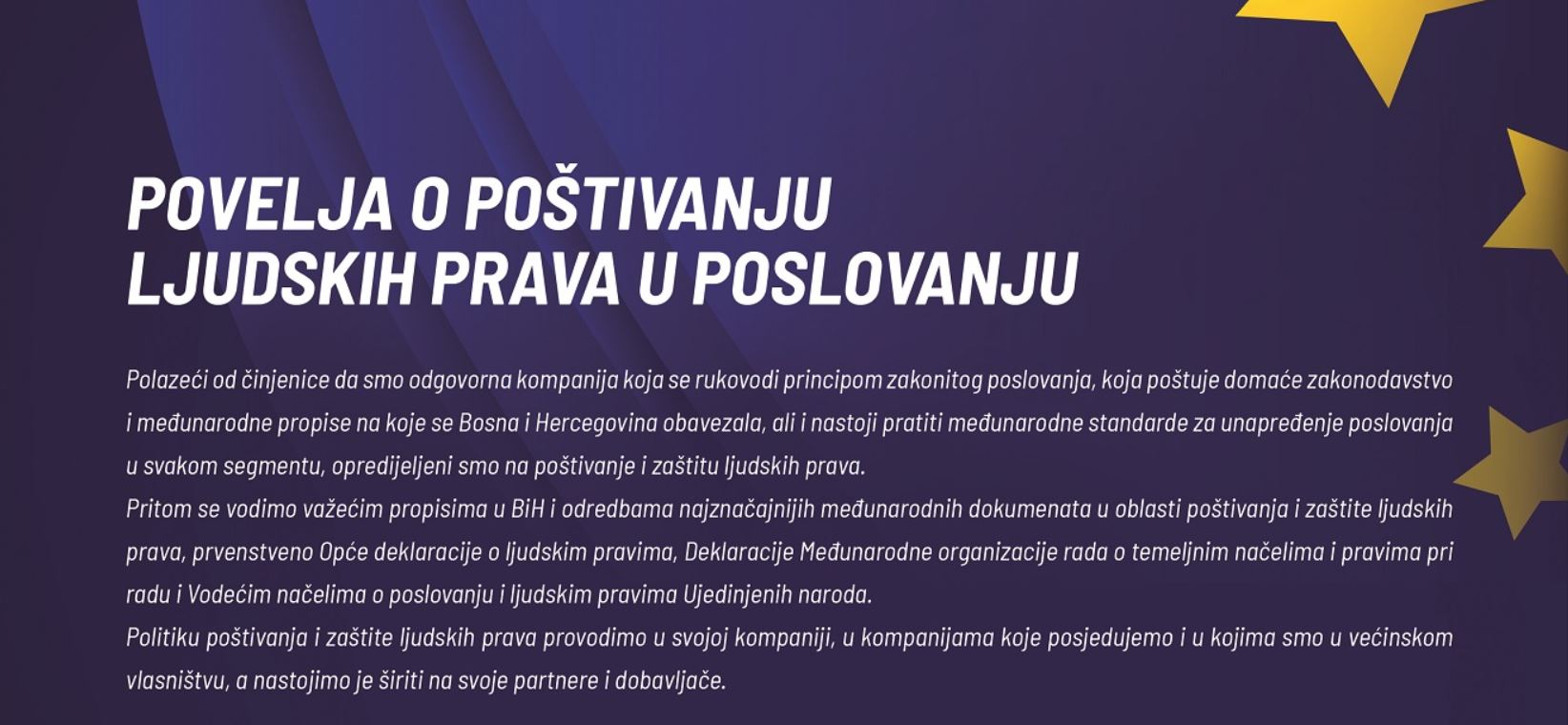






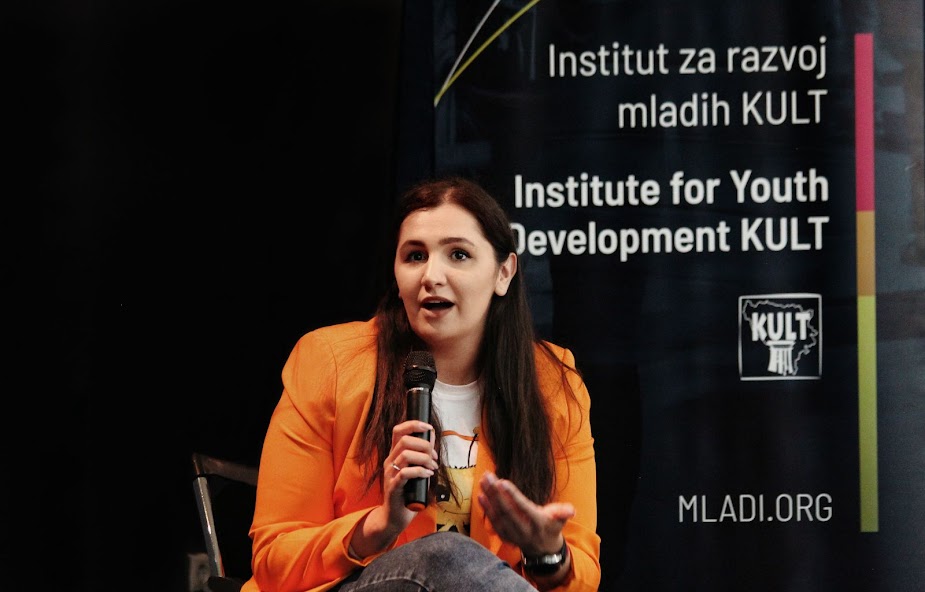
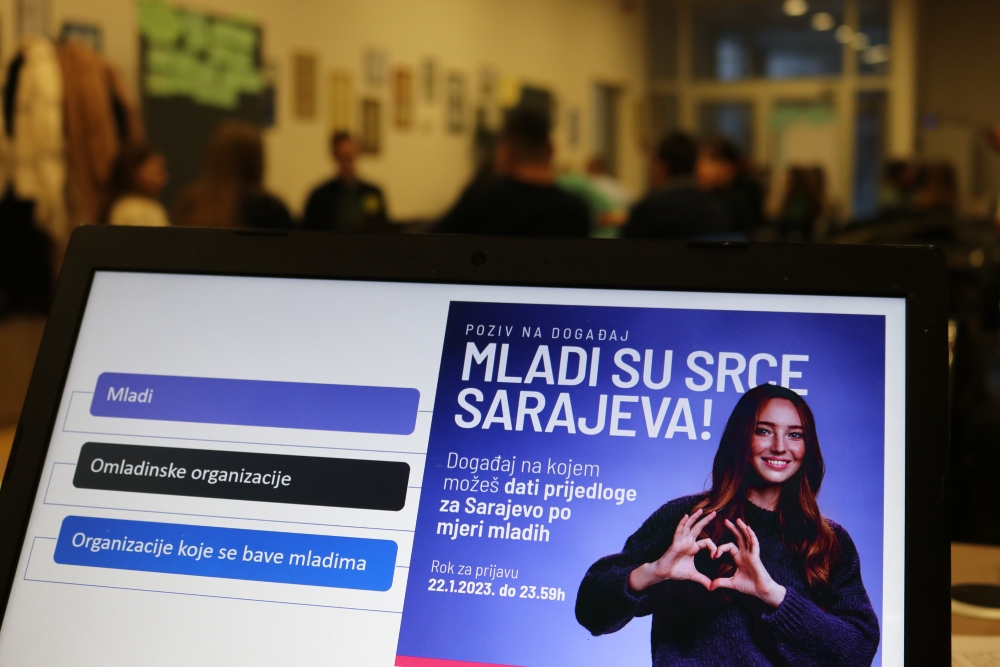
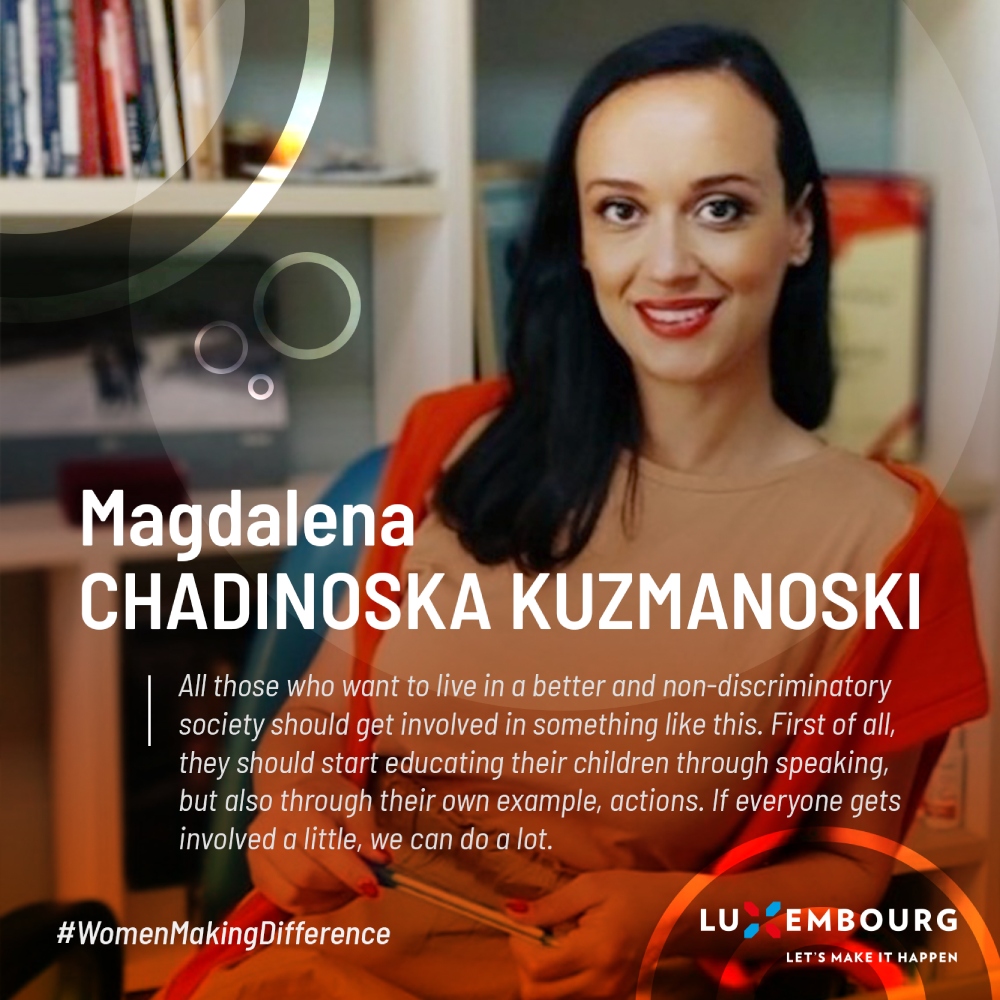
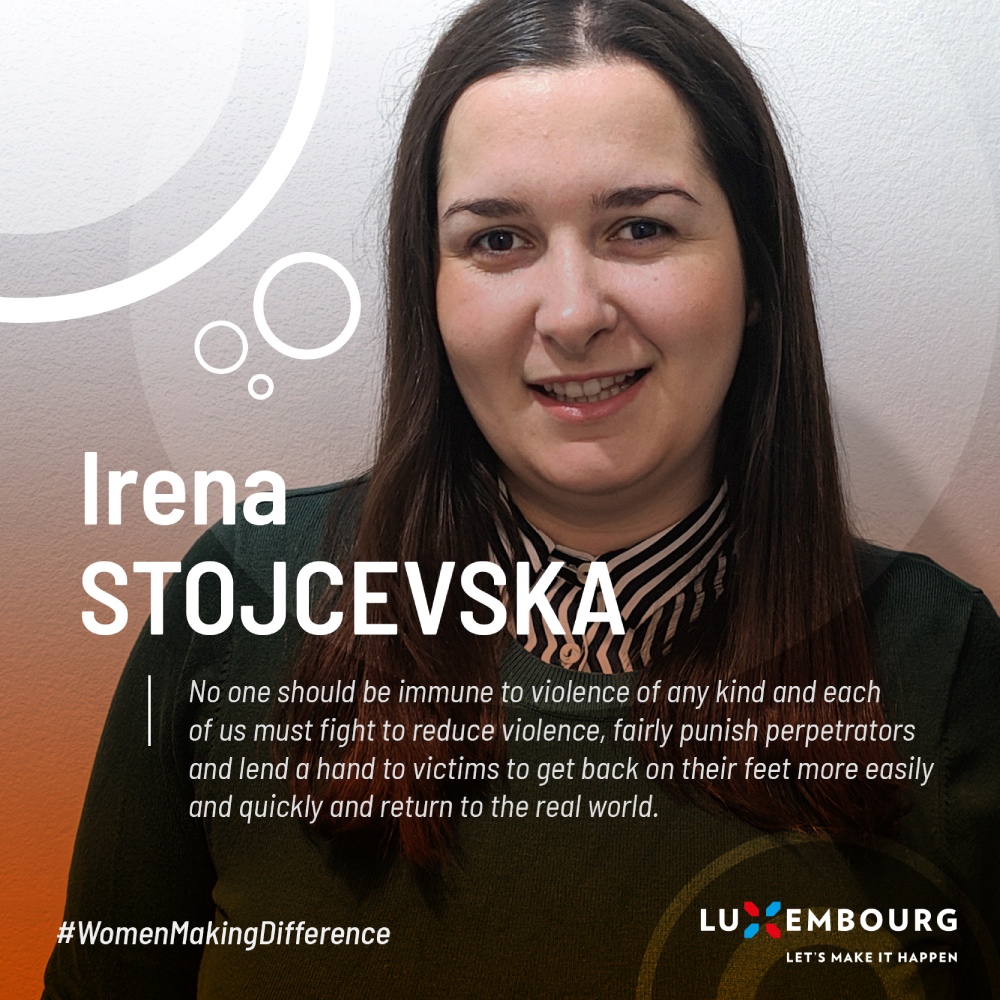
Leave a comment